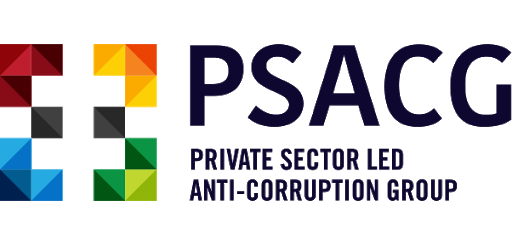Corruption continues to be a growing concern in Ghana and the menace has always been largely blamed on weak institutions and failure on the part of duty bearers to effectively implement the plethora of policies and legal frameworks established to combat the canker.
In spite of efforts instituted by successive governments, the country has not been performing well in both regional and global rankings. Ghana for instance, scored 41 points out of 100 on the 2019 Corruption Perception Index reported by Transparency International.
The Commission on Human Rights and Administrative Justice (CHRAJ), estimates that Ghana loses about GH¢13.5 billion every year through corruption. Nonetheless, discussions on the economic implications of corruption have largely dwelled on losses to the state with little focus on how they affect the business community.
The private sector
The private sector remains an important source of investment in the economy as it contributes more than 70% of Ghana’s gross domestic product (GDP). Thus, the creation of an environment that is devoid of corruption is critical to the growth of businesses and the economic transformation of the country at large.
The latest (2019) World Bank annual ratings rank Ghana 118 among 190 economies in the ease of doing business. The rank of Ghana deteriorated to 118 in 2019 from 114 in 2018 – posing serious implications on foreign direct investments.
A report on the Cost of Administrative Corruption in Ghana released by the Private Enterprises Federation (PEF) in February 2020 revealed that the estimated cost of administrative corruption to businesses is a total of between GH¢1,000 and GH¢10, 000 per each business for the completion of each process.
The private sector cannot afford to remain silent or unconcerned about corruption in the country as a break in their operations would be synonymous to a total collapse of the entire economy. The private sector, thus, has a major role to play in the eradication of corruption as it largely bears the brunt of the canker.
PSACG’s Relevance
While successive efforts against corruption in Ghana have focused largely on asset recovery and public sector corruption, it is clear that private organisations equally make valuable contributions to the fight.
Beyond the condemnation of corrupt practices, more action is required by anti-corruption agencies to ensure that workable solutions to the problem are being implemented together with the respective authorities.
It is in response to this gap that the Private Sector Anti-Corruption Group (PSACG), a private-sector led project has been exploring challenges faced by local and multinational companies operating in Ghana, how the identified operational bottlenecks affect their businesses, and provide policy recommendations to deal with them.
Aside from offering private sector players a platform to open up freely about corrupt practices that confront their businesses, the group offers practical solutions to government and public sector institutions through policy recommendations to ending the menace. Essentially, the group has also been working in tandem with the government, through the office of the Vice-President to ensure that the recommended anti-graft policies are roundly implemented.
Established in 2018, the PSACG is a project initiated and funded by the UK Department for International Development (DFID’s) Strengthening Action Against Corruption (STAAC) programme with the UK-Ghana Chamber of Commerce (UKGCC) as its delivery partner. Members include the American Chamber of Commerce- Ghana (AMCHAM), Canada Ghana Chamber of Commerce (CGCC), Ghana Netherlands Business & Culture Council (GNBCC), European Business Organization (EBO), Association of Ghana Industries (AGI) amongst others.
The main objective of the PSACG project is to “serve as a voice for the private sector in the fight against business related corruption.” The project also serves as a tool to monitor how well the Government is progressing on the implementation of recommended measures to tackle corruption and related practices.
Third Phase
Currently in its third phase, the anti-corruption intervention is exploring new corruption-related challenges confronting the business community, provide feedback on progress made in the implementation of anti-corruption measures and make recommendations to government based on the emerging challenges.
In this regard, one of the key aspects of the current phase is the safe space survey, in place of a forum as a result of the global COVID-19 pandemic related restrictions, which provides a safe environment for private sector business to bring up any new corruption related issues from their engagement with public sector institutions.
It also allows them the opportunity to give feedback on the measures put in place by government as well as what they would like to see done to further improve the ease of doing business.
The survey has so far identified some hiccups being faced by private businesses coupled with the impact that COVID-19 is having on their operations in 2020. Preliminary findings indicate that, although, there have been improvements in relevant and up to date information sharing from public institutions (about 68% of respondents) and a reduction in solicited payments; undocument payments and standardisation continue to be an issue. About 60% of respondents indicated continued duplication in services with about 40% requested to make undocumented payments.
It is also emerging that the COVID-19 pandemic has also presented an opportunity for some public services personnel to engage in corrupt related practices. Respondents cited instances of officials requesting for payments to process their contract bids or promise of some payments as conditions of award. Respondents involved in the medical supplies manufacturing or procurement sector also indicated some soliciting and other corrupt related practices. Also key for PSACG is the solicitation of kickbacks by private sector workers within the supply chain which it is working with the organizations to address through programmes such as its upcoming learning session on the relevant anti-corruption laws in the US, UK, wider Europe and Ghana.
These and other challenges make PSACG’s commitment to championing the creation of an enabling corruption-free environment for businesses to thrive, worthwhile.
Future Plans
To incorporate challenges faced by indigenous companies as well and make the work of PSACG more relevant to the entire business community, work is currently ongoing to bring other bilateral and local trade associations into the Group. The focus is on private sector organisations whose work require ethical business conduct, such as tax compliance and the adoption of broader business compliance issues contained within the global sustainable development goals.
It is also seeking to establish new secure platforms for private sector organisations to flag corruption and compliance related issues while maintaining existing ones.
Most importantly perhaps is PSACG’s continuous advocacy drive with government to adopt the recommendations contained in the policy document presented through the Vice President’s office last year as well as on emerging challenges.
It is expected that the current phase of the project, which equally seeks to create more public awareness on the woeful implications of corruption, would drive an anti-corruption mindset to propel the growth of the private sector.
Continuous engagement
The Chairperson of PSACG, Adjoba Kyiamah, who is also the Executive Director of the UKGCC affirmed the commitment of the Group to collaborate with the government to tackle corruption that negatively impacts on the cost of doing business to enhance positive investment flows into Ghana.
“We continue to engage with government on the implementation of the recommendations submitted to it through the Vice President’s office at the end of phases one and two. At the end of phase three, a new policy recommendation document on new issues that came up from engagement with private sector businesses will be submitted to the government,” she added.
Positive Feedback
The PSACG has made some positive strides following government’s implementation of some recommendations captured in its report. Initiatives such as digitisation of the Ports, DVLA, Passport Office and the Ghana Revenue Authority (GRA) among others which are all aimed at eliminating the human interface that encourages corruption are progressing steadily.
In May this year, the Ministry of Finance launched three policy initiatives – National Financial Inclusion, Digital Financial Services Policy, and Cash-Lite Roadmap – to accelerate the shift to digital payments and help drive accountability, transparency and efficiency; thanks to the works of the PSACG.
PSACG deserves commendation and must be encouraged in its strive to curb corruption and corruption-related practices that inhibit private sector growth.










